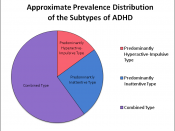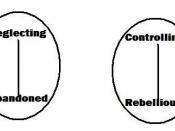Depression, which affects body, mood and thought is an extreme form of feeling sad, and can be mild, moderate, or so severe it leads to an inability to work, or even to suicide. It is so common that one in five of us will suffer from depression at some time in our lives. Depression can be biochemical, caused by altered brain function, or reactive, occurring in response to an event such as divorce, loss of a close friend or family member, or even failure of an exam. We always hear about antidepressants and drug therapies, but what about the non-medicinal therapies? Are they just as effective?
Cognitive therapies are one form of non-medicinal therapy. It is a short-term therapy aimed to change a persons negative thoughts and behaviors and have them focus on the present day. (Gilbert, 2004) With cognitive therapy there are three main goals: The first goal is to help patients identify their unreasonable and maladaptive behavior.
By doing this the therapists instruct the patient to write down their feelings when they may have ill thoughts or feelings and bring them to their next meeting. This not only helps the patient identify with their thoughts and emotions but it also helps the therapist to understand what the patients needs are. The second goal is for the therapist to help the patient adjust their ways of thinking. For example, a woman may think that her spouse is cheating on her and has no evidence. More than likely the woman has a fear that it could happen. The therapist encourages the patient to look at it in a different light by asking questions that will help the patient realize that the thoughts she is having are misleading. And finally the third goal is for the therapist to ask the patient...


